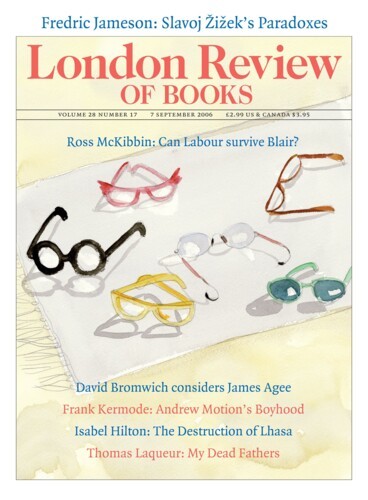First Impressions: Slavoj Žižek’s Paradoxes
Fredric Jameson, 7 September 2006
As every schoolchild knows by now, a new book by Zizek is supposed to include, in no special order, discussions of Hegel, Marx and Kant; various pre- and post-socialist anecdotes and reflections; notes on Kafka as well as on mass-cultural writers like Stephen King or Patricia Highsmith; references to opera (Wagner, Mozart); jokes from the Marx Brothers; outbursts of obscenity, scatological as well as sexual; interventions in the history of philosophy, from Spinoza and Kierkegaard to Kripke and Dennett; analyses of Hitchcock films and other Hollywood products; references to current events; disquisitions on obscure points of Lacanian doctrine; polemics with various contemporary theorists (Derrida, Deleuze); comparative theology; and, most recently, reports on cognitive philosophy and neuroscientific ‘advances’. These are lined up in what Eisenstein liked to call ‘a montage of attractions’, a kind of theoretical variety show, in which a series of ‘numbers’ succeed each other and hold the audience in rapt fascination.





